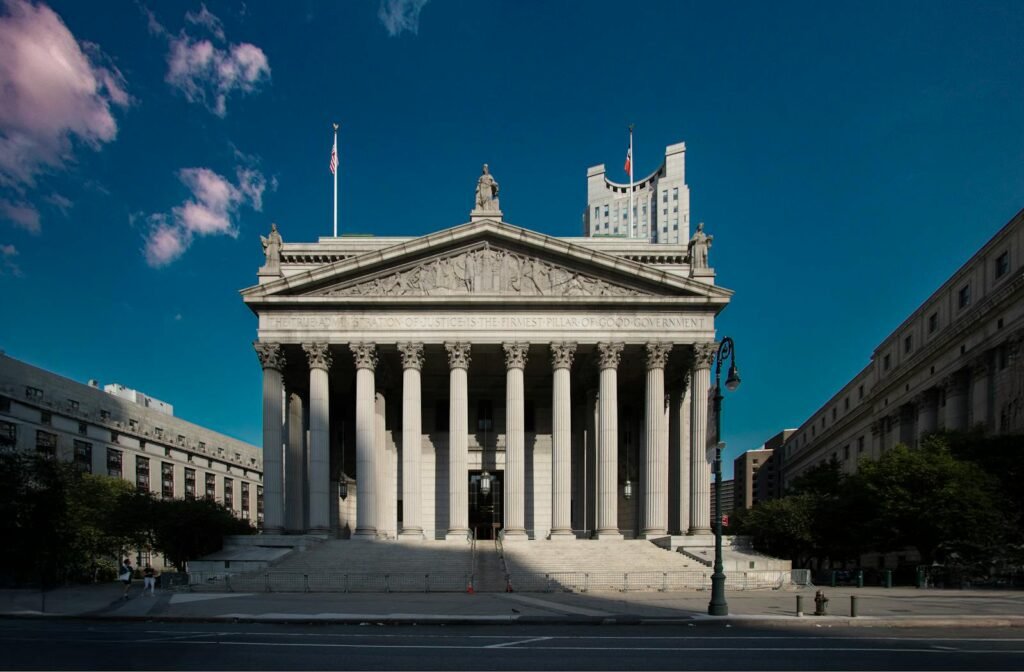
Supreme Court weighs limits on key federal environmental law
by Chase Woodruff, Maine Morning Star
December 10, 2024
Justices on the U.S. Supreme Court on Tuesday appeared generally willing to strike a blow against a key federal environmental law in a case brought by Coloradans against a controversial Utah oil-train project — but they struggled to reach a consensus on exactly how to define the new limits they might impose on the law.
Petitioners in the case, Seven County Infrastructure Coalition vs. Eagle County, are asking the justices to reverse a lower court ruling against approval of the Uinta Basin Railway, an 88-mile railroad project in eastern Utah that Coloradans and environmental advocates sued to stop.
The railway would connect the Uinta Basin oil field to the national rail network, allowing drillers there to dramatically ramp up production of crude oil to be shipped in tanker cars to refineries on the Gulf Coast — a route that runs directly through the Colorado River Valley and the Denver metro area. The project would constitute one of the largest sustained efforts to transport oil by rail ever undertaken in the U.S., singlehandedly more than doubling the 2022 nationwide total, and resulting in up to a tenfold increase in hazmat rail shipments through central Colorado.
The U.S. Court of Appeals for the D.C. Circuit sided with Colorado’s Eagle County and five environmental groups, ruling last year that the project’s approval contained “numerous” and “significant” violations of the National Environmental Policy Act. But the Utah county governments behind the project successfully petitioned for a review by the conservative-dominated Supreme Court.
Paul Clement, a veteran conservative litigator who served as U.S. Solicitor General under President George W. Bush, presented arguments for the petitioners.
Clement called NEPA a law that was meant to “inform government decision-making, not paralyze it” and repeatedly emphasized what he said was NEPA’s role in restricting investment in large infrastructure projects.
“Infrastructure requires investment, and for investors, time is money,” Clement said.
The petitioners’ argument — supported in friend-of-the-court briefs by a long list of conservative advocacy organizations and fossil fuel industry groups — asks the court to impose new limits on the scope of NEPA reviews based on “proximate cause” principles borrowed from tort law. That would be the court’s most drastic change to NEPA in decades.
But under repeated questioning from justices, Clement struggled to concisely articulate the specifics of the new test the petitioners propose to replace the standard that currently governs the scope of NEPA reviews, which instructs federal agencies to study the “reasonably foreseeable” effects of major decisions.
“If I could give you a 10-word test that took care of every hard case, they’d give me tenure at Harvard,” Clement joked.
“Proximate cause maybe isn’t the alpha and omega, but it sure is helpful,” he added.
The federal government has asked the court to issue a narrow ruling, arguing that the D.C. Circuit “erred” in vacating the railway’s approval but maintaining that the petitioners’ proposed reshaping of NEPA goes too far. Edwin Kneedler, deputy solicitor general, presented the government’s case and asked justices to remand proceedings back to the Court of Appeals.
William Jay, a partner at the D.C.-based Goodwin Law Firm, argued the case for Eagle County, on behalf of all respondents in the case.
The “entire purpose of the project,” Jay said, is to transport waxy crude oil from the Uinta Basin to Gulf Coast refineries, making impacts like expanded oil and gas development, increased refinery emissions and accident risks on Colorado railroads fit well within the “reasonably foreseeable” test.
The Uinta Basin Railway would accommodate an estimated capacity of up to 350,000 barrels of oil per day. Hazmat shipments from the new rail line would run through central Colorado, including environmentally sensitive regions along the Colorado River and more densely populated areas in the Denver metro area.
“This case is bigger than the Uinta Basin Railway,” Sam Sankar, an attorney with environmental group Earthjustice, one of the parties to the case, said in a statement ahead of Tuesday’s oral argument. “The fossil fuel industry and its allies are making radical arguments that would blind the public to obvious health consequences of government decisions. The court should stick with settled law instead. If it doesn’t, communities will pay the price.”
This story was originally published by Colorado Newsline. Like Maine Morning Star, Colorado Newsline is part of States Newsroom, a nonprofit news network supported by grants and a coalition of donors as a 501c(3) public charity. Colorado Newsline maintains editorial independence. Contact Editor Quentin Young for questions: info@coloradonewsline.com. Follow Colorado Newsline on Facebook and X.
YOU MAKE OUR WORK POSSIBLE.
Maine Morning Star is part of States Newsroom, a nonprofit news network supported by grants and a coalition of donors as a 501c(3) public charity. Maine Morning Star maintains editorial independence. Contact Editor Lauren McCauley for questions: info@mainemorningstar.com.



